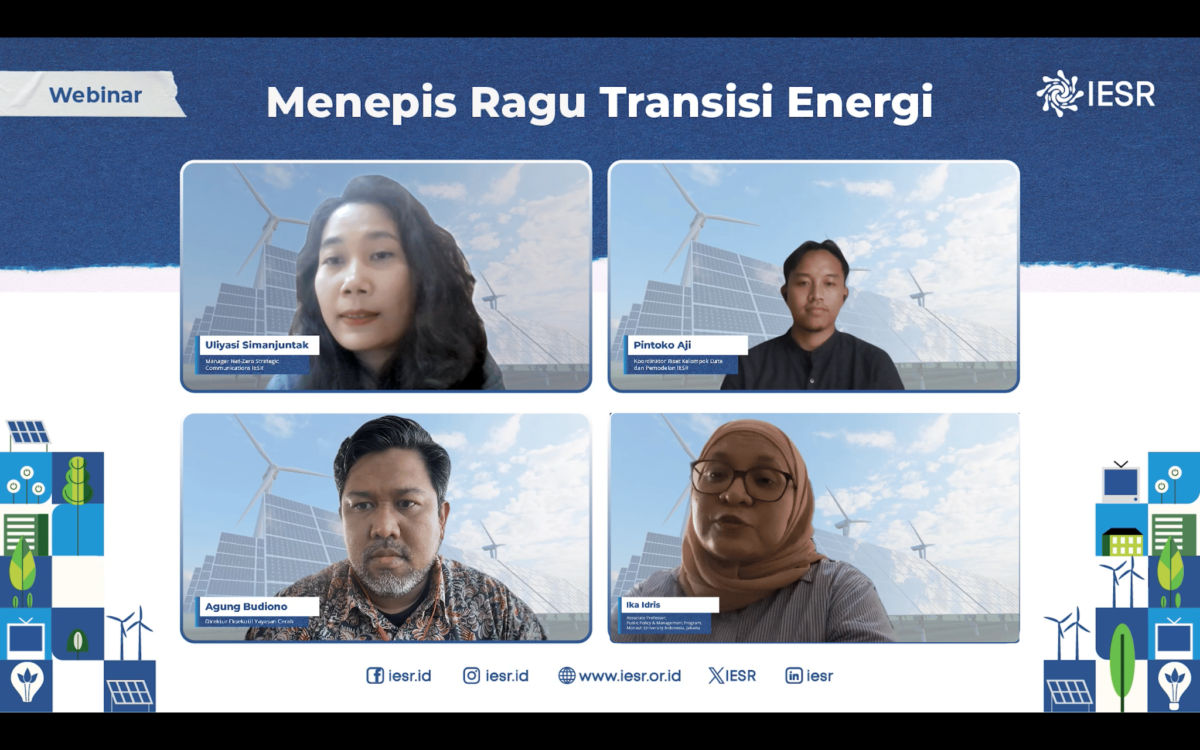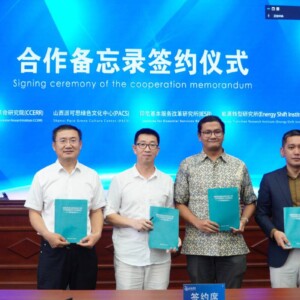Jakarta, June 25, 2025 – The year 2024 was the hottest on record, with global average temperatures more than 1.5 degrees Celsius above pre-industrial times (1850-1900). The World Meteorological Organization (WMO) predicts that without urgent action, temperatures in the coming years could be even hotter. This indicates that time is running out to prevent the worst impacts of climate change. Therefore, Indonesia, along with other countries, needs to act in accordance with the Paris Agreement target, which is to keep global temperatures below 2 degrees Celsius, and strive to stay below 1.5 degrees Celsius. This was revealed by Kurniawati Hasjanah, Communication Officer of the Institute for Essential Services Reform (IESR) in the Webinar Webinar Dismissing Energy Transition Doubts held on Tuesday (24/6).
“One of the main obstacles in the energy transition is the rampant inaccurate information, both intentionally (disinformation) and unintentionally (misinformation), as well as fake news that triggers confusion in the community. Usually, this misinformation is spread by parties with economic or political interests,” said Kurniawati.
Citing data from the Bright Indonesia Foundation Report, Kurniawati said mass media often discuss macro policies that are not very relevant to the practical needs of the community, while people generally need practical and relevant information.
“Therefore, IESR launched the Learning Energy Transition page to present fact-based information that can be easily accessed by the public. The Learning Energy Transition page is tailored to different audiences, both for children and adults,” Kurniawati said.
The Learning Energy Transition platform covers six important themes, such as why Indonesia should transition, whether renewable energy is reliable, whether fossil energy is really cheap, whether electric vehicles can reduce emissions, and various matters related to induction cookers.
Agung Budiono, Executive Director of Yayasan Indonesia Cerah, revealed that the energy transition started to get big attention in Indonesia around 2017. Previously, the topic was barely heard in the media or public conversation. Since then, talk about the energy transition has grown rapidly, especially in digital and social media as well as mainstream media.
“However, there is often a gap between what the government or authorities say and what the public understands. Most reporting on the energy transition focuses on technocratic issues, such as policies, investment targets and technologies. These, while important, are often not connected to the needs and understanding of the wider public,” Agung said.
Under these conditions, according to Agung, a learning platform that introduces the concept of energy transition to the public is needed. This kind of platform not only conveys technical information, but also packages it in a language that is easily understood by various groups. Whether it is for children, teenagers, or adults, educational platforms should be able to customize the language style and approach used for different audiences.
Ika Idris, Associate Professor, Public Policy and Management at Monash University Indonesia, emphasized the importance of understanding the motivations underlying public behavior in supporting or responding to a major issue such as the energy transition. According to psychological theory, there are various motivations that can influence individual attitudes, such as the need for security, stability, achievement, social status, social justice, and a sense of responsibility for the future. In this context, these motivations can be mobilized to support the energy transition if the narrative is able to connect the issue with the values valued by society.
“For example, some time ago there was a boycott movement against companies involved in major corruption cases. People felt moved to buy products from companies that are considered more transparent and less corrupt. This shows that the public has the potential to act based on their moral principles and values. If the energy transition can be packaged in a narrative related to social justice or responsibility to the future, then people are more likely to be engaged in supporting this change,” said Ika.
Pintoko Aji, Research Coordinator of the Data and Modeling Group, IESR emphasized the need to build arguments by showing partiality to affected communities. In the context of energy transition, many communities are directly affected by the use of fossil energy, such as pollution and environmental damage. As part of the solution, cleaner energy that is more environmentally friendly can provide long-term benefits for the wider community, and this is an important reason to side with the energy transition.
“In addition, energy technologies cannot be viewed neutrally. Every technology carries certain values that are connected to who benefits and who loses. On this topic, clean energy technology should be seen as an endeavor that not only has a positive impact on the environment, but also on the people who are often the victims of the damage caused by fossil energy. Thus, it is important to always side with the interests of the wider community, especially those who are vulnerable to the impacts of climate change and pollution,” said Pintoko.


